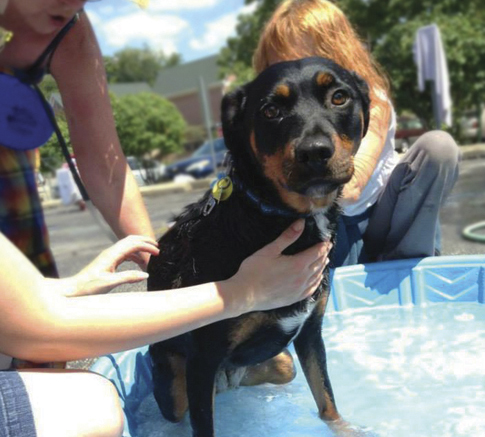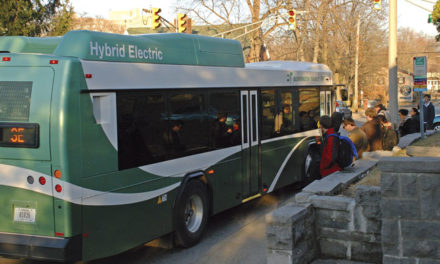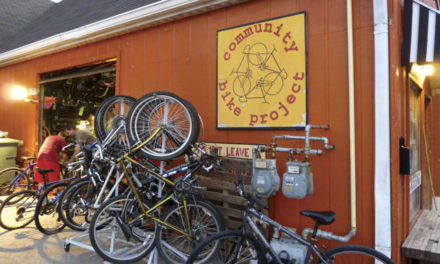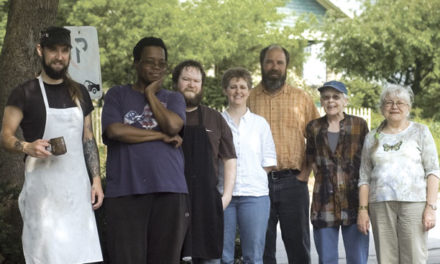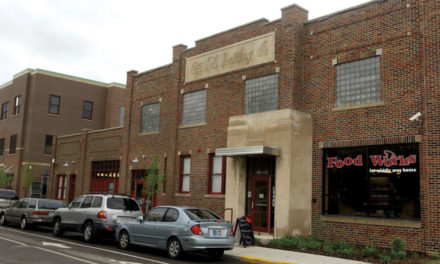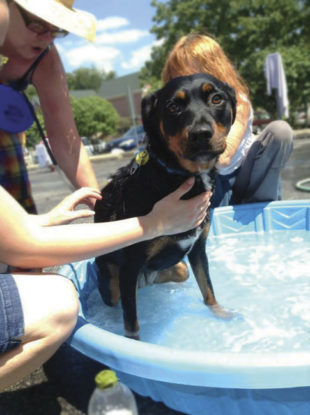
PAWSS dog wash. Photo by Angela Herrmann
BY CELIA GRUNDMAN
“If I leave, what will happen to my pet?” is a question often asked of advocates on the Middle Way House crisis line. Until now, there has been no easy answer for women wanting to escape an abusive relationship and come to Middle Way’s domestic violence and rape crisis shelter with their pets.
“The link between domestic violence and animal abuse is something that not a lot of people are aware of, and it is a barrier for people to leave their abuser,” says Erin Biebuyck, a women’s advocate at Middle Way House.
To remove that barrier, Middle Way has instituted a new program, Providing Animals and Women with Safe Shelter (PAWSS). Pets are given over to trained foster parents until such time as the owners have a safe place to live and can care for their pets once again.
The co-abuse of women and pets is widespread. According to the National Coalition Against Domestic Violence, 71 percent of women experiencing domestic violence “reported that their abusers had threatened, harmed, or even killed a family pet.”
The impetus for the PAWSS program came from local animal welfare activist Allison Hess. She contacted Biebuyck, who runs the crisis line and knew firsthand of the problem.
“At the time, we didn’t have any official options for people to bring their animals with them,” Biebuyck says, noting that staff members and local veterinarians would sometimes take in pets out of compassion.
The two women formed a committee that included retired animal behaviorist Jo Liska, who founded the Bloomington Animal Shelter’s foster program. By the time PAWSS begins admitting pets in October, 15 foster parents will be trained and ready to care for pets. All will send updates and photos to the animals’ owners until they can be reunited with their pets.
To finance the program, more than $18,000 was raised through the crowd-funding site StartSomeGood. The first $12,000 will be used to provide veterinary care, food, and other necessities for the first 100 pets to enter the program. The remaining money was put into an emergency veterinary fund.
“We are also working with Pets Alive to provide vaccinations and spay/neuter surgery,” Biebuyck says. “The main thing the money is going to go for is to guarantee that every pet that comes into our program has basic vet care.”
Local businesses also have contributed in-kind donations, such as pet food and toys that are used in start-up kits for the foster parents.


